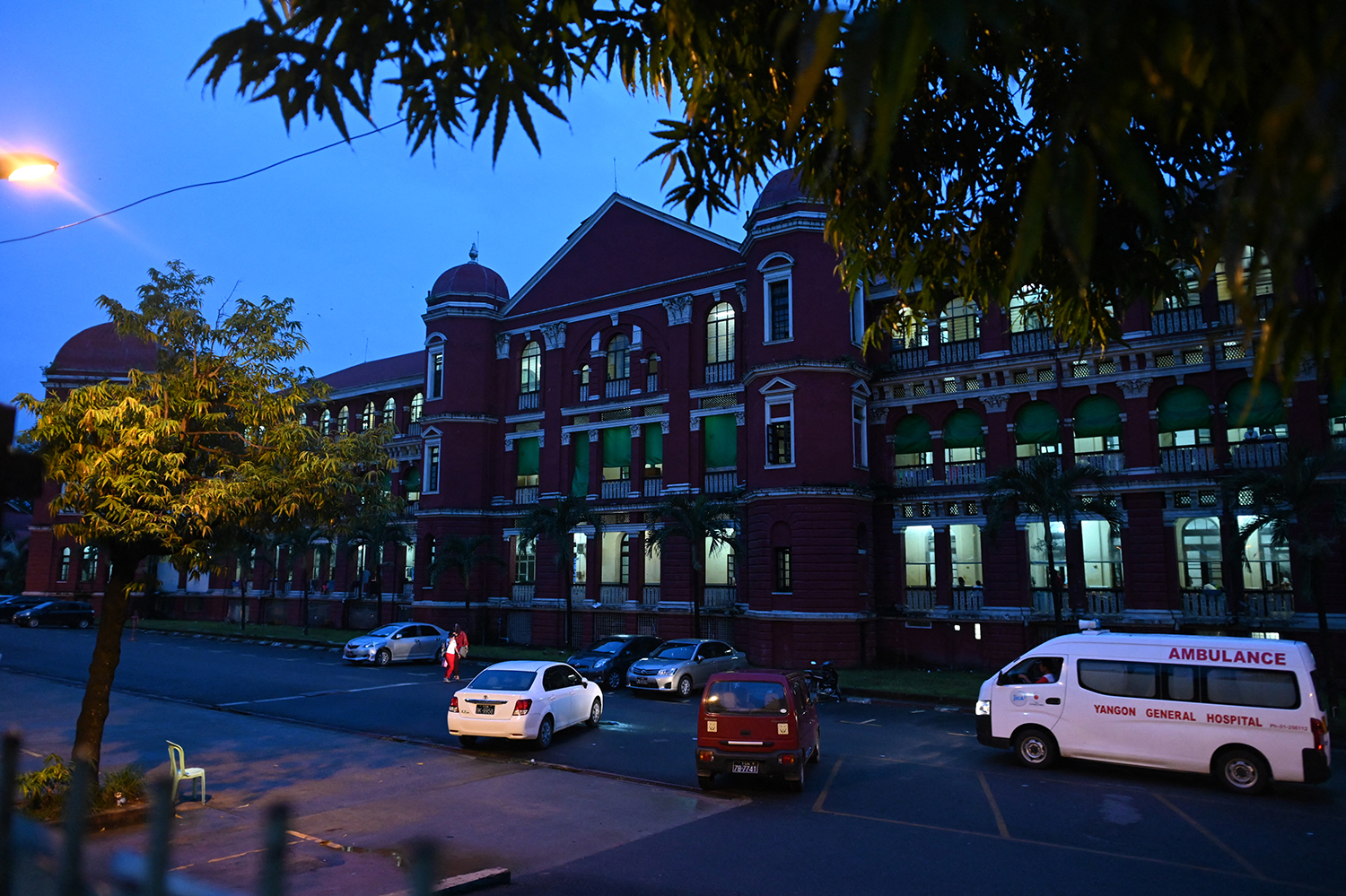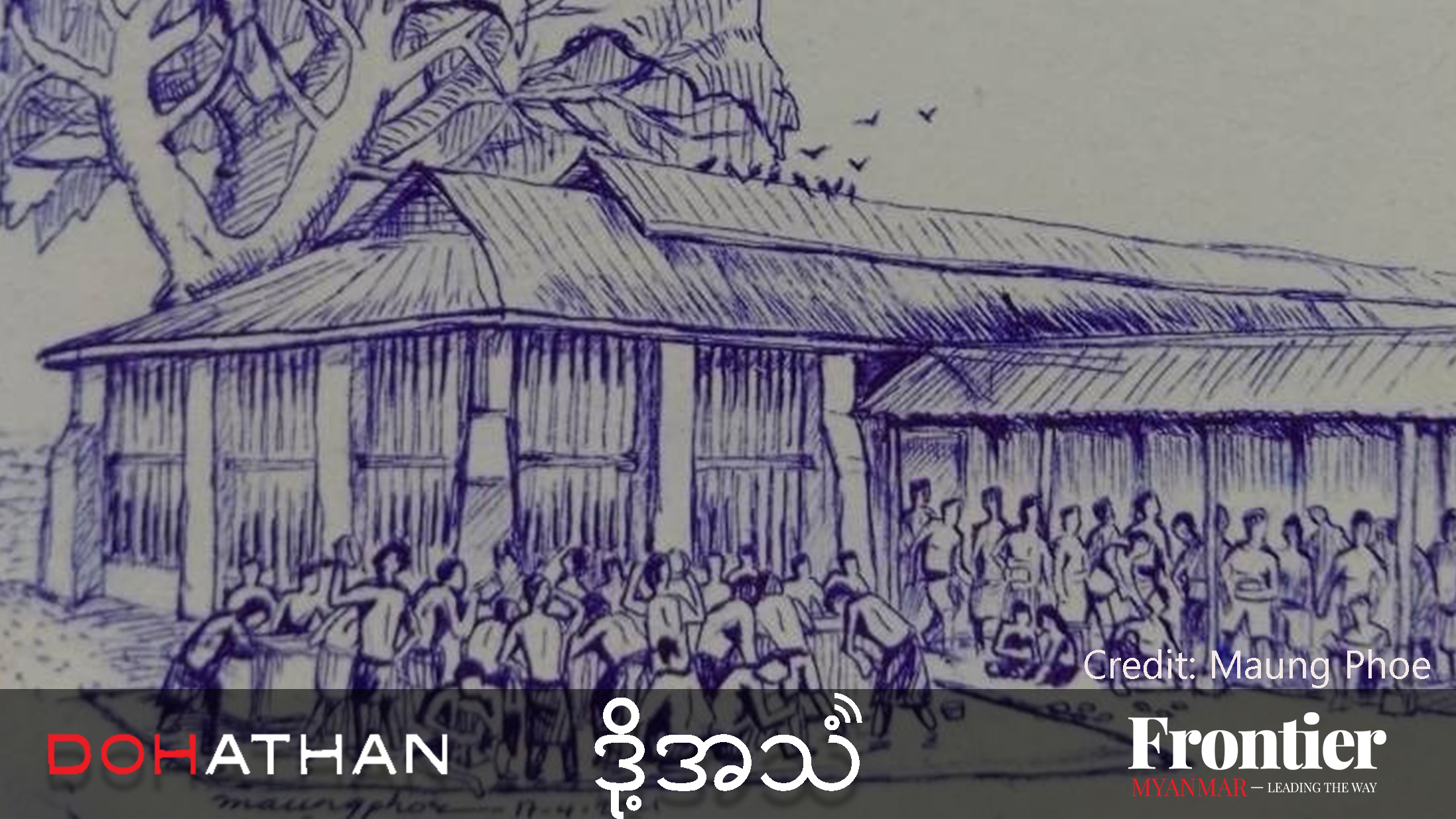The introduction of higher fines for minor road infringements has increased opportunities for corruption in the traffic police force, but motorists aren’t complaining.
By HEIN KO SOE | FRONTIER
IN SEPTEMBER 2015, President U Thein Sein signed a new Motor Vehicle Law. With the stroke of a pen, fines for minor traffic infringements rose from a maximum of K1,500 to K30,000. For more serious offences, the punishments include prison time and fines of up to K1 million.
Traffic police had long complained that the K1,500 sum – a considerable amount when the old law was amended in 1989, but long since devalued by Myanmar’s chronic inflation – made their job difficult. The amount was so small that it did not serve as an effective deterrent, officers said.
Two years on, Frontier polled drivers on the impact of the higher fines. The feedback seemed clear: the only major change appears to be the size of the bribe they pay to the traffic police.
Drivers said the typical payment of K10,000 to K15,000 was still not high enough to deter them from knowingly breaking the law.
Support more independent journalism like this. Sign up to be a Frontier member.
U Arr Noe from Dagon Seikkan Township was driving an unlicensed taxi when he was stopped by traffic police in Thaketa Township eight months ago.
Instead of having his licence confiscated and facing a mandatory fine, he paid a K15,000 bribe to the officers, who let him continue on his way. Arr Noe said he would typically pay a K3,000 bribe under the old law. “I don’t really know what the new law says, but I know that the size of the penalty has increased.”
When U Soe Lwin drove through a red light on Sule Pagoda Road recently, he paid K10,000 to the officer controlling the light.
“I didn’t see the light colour change because I was behind a large bus,” he said. “But after I went through the junction the traffic officer came over to negotiate, and I gave him this amount.”
Not every offence can be avoided with a bribe though. In the event of a serious accident, police will have to officially record the case. However, bribes are still normally paid so that the traffic police officers reduce the severity of the alleged offence.
Saving time
For Arr Noe, paying a bribe was commonsense; the amount was less than the official fine but, more importantly, it saved him the hassle of dealing with the authorities any further.
“We never get an infringement notice,” he said. “If we will get this notice we need to go their office and the process is confusing and difficult to resolve. So we just give them money.”
When an infringement is spotted, the official procedure is for officers to take the driver’s licence and issue a receipt, which allows them to continue driving with some limitations.
The case is then recorded at the Traffic Police headquarters on 51st Street in downtown Yangon.
Police Captain Win Lwin said that under the Motor Vehicle Law, all cases are supposed to be transferred to the Traffic Court, where a judge decides the penalty.
But he said that in practice the traffic police office levies a fine and returns the licence immediately for minor offences. More serious cases – for example, where public safety was put at risk or traffic congestion significantly worsened – will still be transferred to court, he said.
Still, paying the fine in person can be a major inconvenience, as Ko Win Hlaing, a driver for a private company, discovered recently.
On the morning of October 25, he dropped a staff member on Anawrahta Road in Latha Township, close to 19th Street. A nearby officer issued him an infringement notice for double parking.
Win Hlaing went to the 51st Street office the following morning to pay the fine but the officer told him to wait because the case hadn’t been processed yet.
“I waited from 10am to the early afternoon,” he said. “It was very annoying because I had to take a half-day leave just to get my licence back.”
He suggested that an electronic system for paying fines would encourage drivers not to bribe traffic police.
“If I could pay the fine without wasting time I would do it,” he said. “But the traffic police need to change their character. I doubt they will want to use an electronic system because they won’t get as much money.”
Global examples
Paying bribes to traffic police – and law enforcement more broadly – is far from unusual, particularly in developing countries where public service salaries are low.
The experience in Myanmar after the introduction of the Motor Vehicle Law is hardly unique, either. Raising fines has been observed to increase corruption in Russia, for example, which has significantly increased road user penalties since 2008.
In a 2015 article, “Corruption on the road: A case study of Russian traffic police”, researcher Mr Anton Oleinik from the Memorial University of Newfoundland wrote that this leads to the emergence of a “vicious circle”, where “motorists’ rational considerations lead them to accept bribery instead of fighting corruption”.
“Attempts to enhance compliance with the traffic laws and regulations by increasing their severity turn out to be counter-productive: they contribute to the spread of corruption instead,” he wrote in the article, published in IATSS Research.
dsc_0417.jpg

A traffic policeman on duty in downtown Yangon. (Steve Tickner | Frontier)
So, why does corruption matter? Because bribes go into officers’ pockets, they can be considered lost state revenue. Bribes also undermine trust in officers and confidence in the rule of law. Because those who pay a bribe typically get away with a reduced punishment; corruption undermines efforts to get the public to comply with the law.
This is arguably the biggest problem with traffic police corruption: it hinders the uniform enforcement of road rules and thus makes the roads less safe. This has a direct economic impact through increased accidents, including those that result in injury or even death.
However, Oleinik also notes in his article that some research indicates that indirect corruption can actually improve road safety in low- and middle-income countries, by suppressing economic growth.
There are many approaches to tackling corruption among traffic police, and law enforcement more generally. Political will is considered essential. Higher public salaries and stricter enforcement tend to help. An enabling environment for the public to complain about corruption is also necessary.
Technology can also play a role. In the Myanmar context, making it easier to pay a fine and avoid the hassle of having a licence temporarily confiscated could make a big difference. While electronic payment systems, including debit cards and digital wallets, are not yet common, they are likely to be more widely used in the years ahead. Fines could be paid with a swipe or QR code. Additionally, the widespread use of social media could be harnessed to enable the public to complain about corruption.
More extreme options have been tried. In 2004, Georgia’s anti-corruption drive saw it fire all 2,700 traffic police and replace them with better-paid and supervised officers. The measure – along with others in Georgia to remove petty corruption – apparently worked, and was popular with Georgians sick of having officers extort money on the roads.
‘Friendship fee’
Almost every morning you’ll see them, in their neat, white uniforms: traffic police officers stopping cars at the corner of Shukhinthar and Yadanar roads in Yangon’s Thaketa Township.
Mostly they ignore the passenger cars, instead focusing on container trucks. The road is one of the main routes out of the Thilawa port to central Yangon, so there’s no shortage of large vehicles to inspect.
Most drivers have the requisite paperwork: vehicle registration, driver’s licence and permission to carry the items in their truck. The officers also check the load is properly secured. And when the inspection is complete, the drivers hand over K500 or K1,000 – what they call baw-dar kyay, or a “friendship fee”.
Container driver Ko Thein Nyan said the officers do not demand the money; most drivers pay it willingly. But the motivation is still largely self-interest.
“We need a good relationship with them because we are working in the transportation field,” he told Frontier. “But if we don’t pay sometimes it’s no problem.”
Is this corruption? It’s a question some have tried to answer. In a 2012 article, “Here’s a Tip: Prosocial Gratuities Are Linked to Corruption”, published in Social Psychological & Personality Science, researchers found that tips and bribes possess “striking similarities” and the line between the two can be blurry.
Reporting on the article, Harvard Business School’s Working Knowledge website said researchers found that in some places tips are provided not so much to reward good service but to encourage good service in the future – a perception that brings the tip closer to the purpose of a bribe.
The research team compared attitudes in Canada and India, where tipping habits were similar but corruption levels were much higher in the latter. Indians were more likely to tip with the expectation of good service in the future and also rated bribery as more morally acceptable than Canadians did, they found.
“In the mind of someone who thinks of tipping as something that implies better future service, tipping and bribery are closer together,” Mr Magnus Thor Torfason, an assistant professor in Harvard Business School’s Entrepreneurial Management Unit who led the research, was quoted as saying.
No complaints
It seems that traffic police are delivering on the promise of special service when those bribes are handed over: Although corruption is widespread, senior officers say they have received no complaints from the public.
Traffic Police Captain San Tun, who is based in Yangon, acknowledged that some officers take bribes, but suggested that the lack of complaints indicated it wasn’t a big problem. “If anyone bribes our staff please complain with real evidence and we will take action. So far we haven’t received any complaints.”
But there’s little doubt that corruption is taking place.
In Transparency International’s latest Global Corruption Barometer, just one percent of respondents from Myanmar said they thought all police were clean. In contrast, 47 percent of respondents said they thought some police were corrupt, 33 percent thought most were corrupt and 15 percent believed all were corrupt – slightly above the regional average.
At a workshop in March 2016, the Myanmar Centre for Responsible Business asked respondents where they had encountered corruption in their personal lives. Traffic police came in third, at 21 percent, behind only Yangon City Development Committee (24 percent) and immigration offices (24 percent).
The official data also testifies to the scale of the problem. Figures from the Yangon Region Traffic Police Force show that just 903 cases were reported in August and 905 in September for 18 offences, including double parking, speeding and doing an illegal U-turn.
The city’s traffic police force has more than 1,000 officers. Some will be based in offices rather than on the streets, but even so that equates to just one or two cases per officer per month.
It’s not that tip-offs are discouraged. The traffic police force has in the past used state media to invite them from the public through the traffic police force Facebook page or Viber account.
The Anti-Corruption Law also does not make it an offence to pay a bribe to a civil servant; most complaints submitted to the Anti-Corruption Commission are from people who have paid a bribe to a government official but not received the “service” they believed they were paying for.
Commission member U Thin Maung said the commission did not focus on petty corruption, and out of more than 3,000 complaint letters it had received to date none had concerned the traffic police. He suggested there was nothing wrong with paying a small bribe anyway.
“It’s normal for traffic police and drivers to solve their problem like this,” he said. “If you broke the road rules, what would you do?”
U Kyaw Kyaw Soe, a taxi driver in Yuzana Garden City, said both drivers and traffic police were comfortable with the status quo. “They want to make money from us, and we want to avoid complications so it’s the easiest way,” he said.
“I think this is how it will always be,” he added. “I can’t see it changing.”
TOP PHOTO: Theint Mon Soe aka J | Frontier







